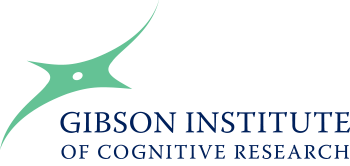New Research Shows LearningRx Cognitive Training Provides Hope for Older Adults with Memory Problems
February 8, 2019 – The results of our study just published in the APA journal Psychology and Neuroscience highlight the benefits of human-delivered brain training for adults over age 50, including better cognition as well as improved mood and life skills. In the study with 292 adults between the ages of 50 and 94 with memory or attention problems, researchers found statistically significant changes in long-term memory, processing speed, auditory processing, fluid reasoning, working memory, and visual processing for both treatment groups following 79 hours of one-on-one cognitive training. In addition, they noted improvements in mood, including bolstered confidence, hope, perseverance, reduced anxiety, and overall outlook. Participants also reported changes in work performance, hobbies and sports, driving, and managing daily responsibilities.
The study was led by Amy Lawson Moore, PhD at Gibson Institute of Cognitive Research along with Dick Carpenter, PhD from University of Colorado Colorado Springs, Christina Ledbetter, PhD from LSU Health Sciences Center, and Terissa Miller, MS Psy also of Gibson Institute. “This is the first study on LearningRx cognitive training to evaluate changes in cognition plus the transfer of training to real life benefits for older adults,” explains Dr. Moore. “Many studies on brain training have shown improvements in the trained skills, but this is the Holy Grail of cognitive training—transfer to life improvements. We think the human element of delivery is the secret to achieving this transfer. That will be our next research focus.”
The study adds to the growing convergence of evidence on the benefits of LearningRx clinician-delivered cognitive training which continues to distinguish it from the “brain games” industry. Dr. Ledbetter, a clinical neuroscientist, states, “The intensity in which a human being can deliver the training tasks is not something that can be replicated by a computer game. We believe it is that intensity coupled with the motivation of working with a personal trainer that drives the changes we are seeing.” The training program used in the study included 35 training procedures with more than 1000 variations that are sequenced in order of difficulty. A metronome and timer are added to the tasks to increase intensity and prevent mental breaks. Each training session lasts 60-90 minutes and participants either attended all training sessions in the clinic or split the sessions with caregivers trained to deliver part of the training at home. In the current study, both delivery methods resulted in similar positive outcomes.
The study abstract, “ThinkRx Cognitive Training for Adults Over Age 50: Clinician-Caregiver Partners in Delivery as Effective as Clinician-Only Delivery” is available at https://psycnet.apa.org/doiLanding?doi=10.1037%2Fpne0000162
The full article can be accessed here on the corresponding author’s website: https://www.gibsonresearchinstitute.org/wp-content/uploads/2019/02/ThinkRx-for-Adults-Over-50_Psy-and-Neuroscience_2019.pdf
